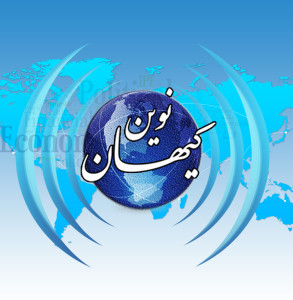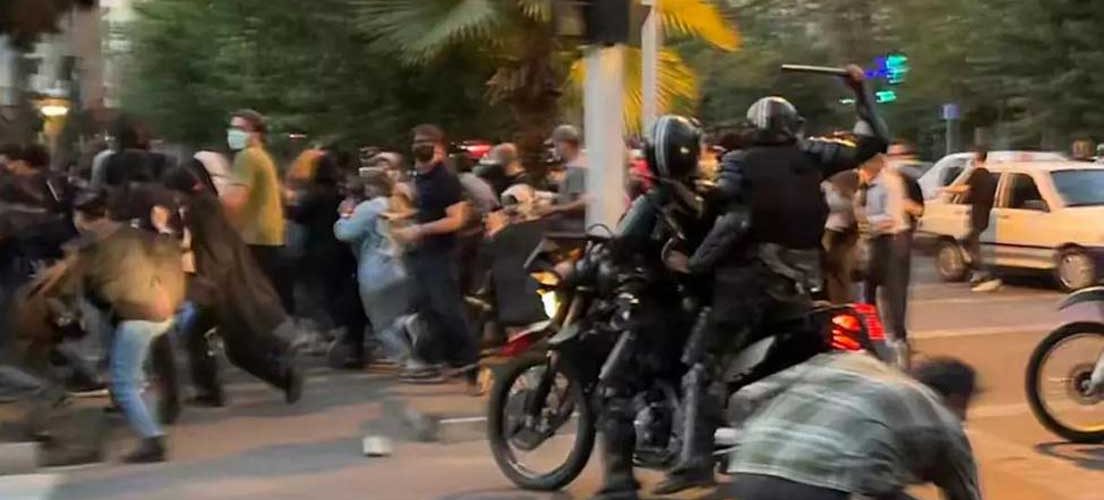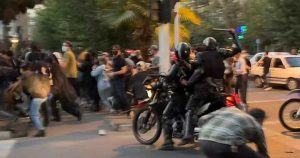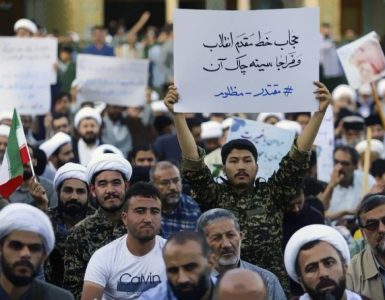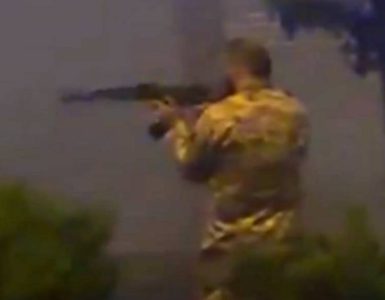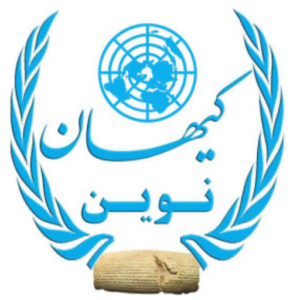کیهان نوین: سازمان دیدهبان حقوق بشر به نقل از یک منبع آگاه اعلام کرد که جواد روحی به مدت ۴۸ ساعت در معرض دمای زیر صفر بوده است. علاوه بر این، تکههای یخ روی بیضهها و سایر قسمتهای بدنش قرار داده شد. دیده بان حقوق بشر گفت: «مهاجمان همچنین با باتوم او را مورد ضرب و جرح قرار دادند و بدنش از جمله کف پاهایش را در حالی که به یک میله بسته بودند شلاق زدند».
هادی قائمی مدیر اجرایی مرکز حقوق بشر در ایران در نیویورک (CHRI) به خبرگزاری فرانسه گفت: «این دستگیریها تلاش آشکار از سوی مقامات ایران برای ایجاد ترس در بین مردم در آستانه سالگرد جنبش و برای جلوگیری از اعتراضات بیشتر است».
-قائمی هشدار داد که «سکوت جامعه بینالمللی» در برابر سرکوب، خطر «چراغ سبز نشان دادن به دستگاه امنیتی حکومت برای ادامه سرکوب جامعه مدنی» را در پی دارد.
مجله آلمانی «اشپیگل» مرگ مرموز بازداشتشدگان و فعالان سیاسی در زندانها را مورد توجه قرار داده است. در گزارش این رسانه آمده سازمان دیدهبان حقوق بشر با انتشار بیانیهای خواستار تحقیق درباره مرگ مشکوک جواد روحی معترض زندانی در شهرستان نوشهر شده است. وی محکوم به اعدام بود اما منابع حکومتی ادعا کردند علت بستری شدن وی در بیمارستان «مصرف شیشه و کراک و زخم در اندام وی بود.»
تارا سپهریفر کارشناس دیدهبان حقوق بشر در ایران میگوید: «هیچ دلیلی وجود ندارد که باور کنیم مقامات ایرانی تحقیقات شفاف انجام خواهند داد… بنابراین یک تحقیق بینالمللی ضروری است.»
این سازمان به نقل از یک منبع آگاه اعلام کرد روحی به مدت ۴۸ ساعت در معرض دمای زیر صفر بوده است. علاوه بر این، تکههای یخ روی بیضهها و سایر قسمتهای بدنش قرار داده شد. دیدهبان حقوقبشر گفت: «مهاجمان همچنین با باتوم او را مورد ضرب و جرح قرار دادند و بدنش از جمله کف پاهایش را در حالی که به یک میله بسته بودند شلاق زدند.»
آنچه در اشپیگل درباره مرگ مرموز زندانیان در بازداشتگاهها منتشر شده بازتابی از مسائلی است که در داخل ایران نیز مطرح شده است.
خبرگزاری «فرانس۲۴» به نقل از فعالان مدنی گزارش میدهد با دستگیری شخصیتهای برجسته، مبارزان و بستگان جانباختگان اعتراضات سرکوبها در ایران شدت گرفته است.
درگذشت مهسا امینی در بازداشت «گشت ارشاد» در تهران به دلیل عدم رعایت پوشش اجباری ماهها اعتراض را پی داشت. معترضان خواستار سرنگونی جمهوری اسلامی هستند.
هرچند پس از سرکوب گسترده در سال ۱۴۰۱ و بازداشت هزاران نفر از مردم و کشته شدن صدها نفر با شلیک مستقیم نیروهای امنیتی اعتراضات تا حدی فروکش کرد اما فعالان در خارج از ایران میگویند که مقامات رژیم به شدت از شعلهور شدن دوباره اعتراضات در سالگرد خیزش سراسری نگراناند وبرای همین سرکوبها را شدت بخشیدهاند.
مهدی یراحی خواننده سرشناس، پس از انتشار ترانه «روسریتو» بازداشت شد.
خبرگزاری «هرانا» گزارش داد که ۱۱ نفر از فعالان حقوق زن در استان گیلان بازداشت شدهاند. در همین حال، عفو بینالملل از بازداشت خودسرانه اعضای خانوادههای کشتهشدگان خبر داد. جمهوری اسلامی با فشار بر این خانوادهها میخواهد آنها را وادار به سکوت در مورد سرنوشت عزیزانشان کند.
هادی قائمی مدیر اجرایی مرکز حقوق بشر در ایران در نیویورک (CHRI) به خبرگزاری فرانسه گفت: «این دستگیریها تلاش آشکار از سوی مقامات ایران برای ایجاد ترس در بین مردم در آستانه سالگرد جنبش و برای جلوگیری از اعتراضات بیشتر است.»
قائمی هشدار داد که «سکوت جامعه بینالمللی» در برابر سرکوب، خطر «چراغ سبز نشان دادن به دستگاه امنیتی حکومت برای ادامه سرکوب جامعه مدنی» را در پی دارد.
عفو بینالملل در گزارشی اعلام کرد که خانوادههای قربانیان کشته شده در سرکوب در سراسر ایران در ماههای اخیر مورد بازجوییهای توهینآمیز، دستگیری و بازداشت خودسرانه و یا احضار و محکومیت ناعادلانه قرار گرفتهاند.
دیانا الطحاوی معاون مدیر منطقهای عفو بینالملل در خاورمیانه و شمال آفریقا، با متهم کردن مقامات رژیم ایران به «تلاش شوم برای سرپوش گذاشتن بر جنایات خود» گفت: «ظلم مقامات ایرانی حد و مرزی ندارد.»
در نمونهای جدید، نیروهای امنیتی سه نفر از اعضای نزدیک خانواده حنانه کیا را که به ضرب گلوله در اعتراضات کشته شده بود بازداشت کردند. یکی دیگر از کسانی که در هفتههای اخیر بازداشت شده سارو مستاجر شهروند اهل شهر سقز است.
کمیته حقوق بشر سازمان ملل گفت که تنها در هشت روز ماه اوت ۲۱ نفر از اعضای خانواده قربانیان در ایران به دادگاه احضار یا بازداشت شدند.
رویا برومند مدیر اجرایی مرکز «عبدالرحمن برومند» مستقر در ایالات متحده نیز میگوید که «اعضای خانواده قربانیان بطور سیستماتیک هدف قرار گرفتهاند… آنها دستگیر شدهاند، دائم احضار و بازجویی میشوند، یا به خانههایشان یورش میبرند.»
برومند گفت که سرکوب «هماهنگ با هدف جلوگیری از انتشار اخبار، فیلمها و تصاویر قربانیان، مراسم بزرگداشت و سایر تجمعات و جلوگیری از بسیج عمومی مجدد در داخل و خارج از ایران است.»
خبرگزاری فرانسه مینویسد این اعتراضات با برداشتن روسری توسط زنان و سردادن شعارهایی علیه علی خامنهای، در تظاهرات خیابانی، تابوهایی را شکست که از ۴۳ سال قبل، پس از انقلاب اسلامی در ایران تحمیل شده بود.
سازمان عفو بینالملل در گزارش جداگانهای اعلام کرده که رژیم ایران سرکوب زنان بیحجاب توسط «گشت ارشاد» و همچنین رصد آنها با دوربینهای نظارتی تشدید شده است. با اینهمه بر اساس تصاویری که در شبکههای اجتماعی به اشتراک گذاشته شده برخی زنان همچنان بدون حجاب در خیابانها رفت و آمد میکنند.
در همین حال، سازمان حقوق بشر ایران که مقرّ آن در نروژ است، میگوید که در سال جاری ۴۸۶ نفر در ایران هدف فضای «ایجاد رعب و وحشت در جامعه و جلوگیری از تظاهرات بیشتر» قرار گرفته و کشته شدهاند.
در حالی که هفت مَرد در پروندههای مربوط به اعتراضات اعدام شدهاند و اجرای این احکام اعتراض بینالمللی را برانگیخته است، اما اکثر اعدامشدگان در ارتباط با پروندههای قاچاق مواد مخدر و قتل هستند؛ افرادی که «قربانیان کمهزینه ماشین کشتار جمهوری اسلامی» به شمار میروند.
ماشاالله کرمی پدر محمدمهدی کرمی از معترضانی که دیماه ۱۴۰۱ اعدام شد ۳۱ امرداد توسط ماموران امنیتی در تهران بازداشت شد. همچنین گزارشهایی مبنی بر دستگیریهایی در استانهای کردنشین ایران منتشر شده است.
New Universe:
Human Rights Watch quoted an informed source as saying that Javad Rouhi was exposed to sub-zero temperatures for 48 hours. In addition, ice cubes were placed on his testicles and other parts of his body. “The attackers also beat him with a baton and whipped his body, including the soles of his feet, while tied to a pole,” Human Rights Watch said.
Hadi Ghaemi, executive director of the Center for Human Rights in Iran (CHRI) in New York, told AFP: “These arrests are a clear attempt by the Iranian authorities to instill fear among the people on the eve of the movement’s anniversary and to prevent further protests.”
Qaemi warned that the “silence of the international community” in the face of repression carries the risk of “showing the green light to the government’s security apparatus to continue the repression of civil society”.
Suppression of protests in Tehran / Autumn 2022
The German magazine “Spiegel” has paid attention to the mysterious death of detainees and political activists in prisons. According to the report of this media, the Human Rights Watch has issued a statement calling for an investigation into the suspicious death of protester Javad Rouhi, a prisoner in Nowshahr city. He was sentenced to death, but government sources claimed that the reason for his admission to the hospital was “consumption of glass and crack and wounds on his body.”
“There is no reason to believe that the Iranian authorities will conduct a transparent investigation … so an international investigation is necessary,” said Tara Sepeharifar, an expert on Human Rights Watch in Iran.
This organization quoted an informed source as saying that Roohi was exposed to sub-zero temperatures for 48 hours. In addition, ice cubes were placed on his testicles and other parts of his body. “The attackers also beat him with batons and whipped his body, including the soles of his feet, while tied to a pole,” Human Rights Watch said.
What was published in Spiegel about the mysterious death of prisoners in detention centers is a reflection of issues that have been raised inside Iran as well.
“France 24” news agency reports, quoting civil activists, that the repressions in Iran have intensified with the arrest of prominent figures, fighters and relatives of the victims of protests.
Mehsa Amini’s death in the custody of Gesht Irshad in Tehran due to non-observance of the compulsory veil led to months of protests. The protesters want to overthrow the Islamic Republic.
Although the protests subsided to a certain extent after the widespread repression in 2022 and the arrest of thousands of people and the killing of hundreds of people by the direct fire of the security forces, activists outside Iran say that the regime authorities are very worried about the rekindling of protests on the anniversary of the nationwide uprising. They are worried and that is why they have intensified the repressions.
Mehdi Yerahi, a well-known singer, was arrested after the release of the song “Roserito”.
“Harana” news agency reported that 11 women’s rights activists were arrested in Gilan province. Meanwhile, Amnesty International reported the arbitrary detention of family members of those killed. By putting pressure on these families, the Islamic Republic wants to force them to keep silent about the fate of their loved ones.
Hadi Ghaemi, executive director of the Center for Human Rights in Iran (CHRI) in New York, told AFP: “These arrests are a clear attempt by the Iranian authorities to instill fear among the people on the eve of the movement’s anniversary and to prevent further protests.”
Qaemi warned that the “silence of the international community” in the face of repression carries the risk of “showing the green light to the government’s security apparatus to continue suppressing civil society.”
Amnesty International announced in a report that the families of victims killed in the crackdown across Iran in recent months have been subjected to abusive interrogations, arbitrary arrests and detentions, or unfair summonses and convictions.
Diana Al Tahawi, the Deputy Regional Director of Amnesty International in the Middle East and North Africa, accused the Iranian regime officials of “sinister attempts to cover up their crimes” and said: “The oppression of the Iranian authorities has no limits.”
In a new example, the security forces arrested three close family members of Hanane Kia, who was shot dead during the protests. Another one of those who have been arrested in recent weeks is Saro Mustajer, a citizen from Saqqez city.
The United Nations Human Rights Committee said that in just eight days in August, 21 family members of the victims were summoned to court or arrested in Iran.
Roya Broumand, executive director of the US-based Abdul Rahman Broumand Center, also says that “family members of the victims have been systematically targeted…they are arrested, constantly summoned and interrogated, or their homes raided.”
Broumand said that the crackdown is “coordinated with the aim of preventing the publication of news, videos and images of the victims, commemoration ceremonies and other gatherings, and to prevent public mobilization again inside and outside Iran.”
AFP writes that these protests broke the taboos that had been imposed in Iran 43 years ago, after the Islamic Revolution, by women taking off their headscarves and chanting slogans against Ali Khamenei in street demonstrations.
In a separate report, Amnesty International has announced that the Iranian regime has intensified its repression of veiled women by the “Gisht Irshad” patrol, as well as monitoring them with surveillance cameras. However, based on the images shared on social networks, some women still walk in the streets without hijab.
Meanwhile, the Iranian Human Rights Organization, which is based in Norway, says that this year 486 people have been targeted and killed in Iran for “creating terror in the society and preventing further demonstrations”.
While seven men have been executed in cases related to protests and the execution of these sentences has provoked international protests, most of those executed are related to drug trafficking and murder cases; People who are considered “low-cost victims of the killing machine of the Islamic Republic”.
Masha Allah Karmi, the father of Mohammad Mahdi Karmi, one of the protesters who was executed in January 2022, was arrested by security agents in Tehran on August 31. There have also been reports of arrests in Kurdish provinces of Iran.

